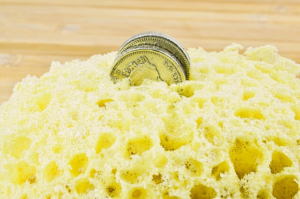7 Key Strategies for Efficient Yard Waste Management by Busy Homeowners
Effective yard waste management is essential for occupied households, especially for busy homeowners with limited time. Yard waste, including grass clippings, leaves, branches, and twigs, can be repurposed through yard waste removal and recyclin…….

Effective yard waste management is essential for occupied households, especially for busy homeowners with limited time. Yard waste, including grass clippings, leaves, branches, and twigs, can be repurposed through yard waste removal and recycling services, which offer both convenience and environmental benefits. These services help create rich compost from nitrogen-rich grass clippings and carbon-containing leaves, while branches and twigs are chipped for mulch use. Utilizing these services enhances property appearance, promotes sustainability by reducing landfill waste, and produces valuable compost. Homeowners interested in sustainable living have eco-friendly options like composting and mulching, which support soil health and minimize environmental impact. Local governments oversee yard waste removal and recycling programs, aiming to manage organic materials responsibly and facilitate resource efficiency through curbside collection services and community drop-off points. DIY composting is an efficient alternative for those who prefer a hands-on approach, contributing to soil health and reducing the need for chemical fertilizers. Professional yard waste removal services offer a time-saving solution for busy homeowners by managing large volumes of organic debris and recycling it into useful products like compost or biogas. The sector has evolved with innovative technologies such as aerated static pile composting systems, bio-digesters converting waste into energy, and smart apps for scheduling and tracking yard waste collection. These advancements make sustainable yard waste management more accessible and efficient for homeowners across the board.
Managing garden waste is a seasonal reality for homeowners who value both aesthetics and sustainability. As leaves fall and plants flourish, dealing with this organic material becomes increasingly important. This article navigates through the various facets of yard waste management, from its composition to eco-friendly disposal options, highlighting the significance of yard waste removal and recycling in maintaining a healthy environment. Explore the role local governments play, delve into DIY composting solutions, assess when professional services might be necessary, and stay informed about the latest technologies transforming garden waste into valuable resources.
- Understanding Garden Waste: Types and Composition
- Eco-Friendly Yard Waste Disposal Options for Homeowners
- The Role of Local Government in Yard Waste Management
- DIY Composting Solutions for Efficient Yard Waste Recycling
- Professional Yard Waste Removal Services: When to Call In
- Innovative Technologies and Trends in Garden Waste Recycling
Understanding Garden Waste: Types and Composition

Managing garden waste effectively is a critical aspect of home maintenance for busy homeowners, who often have limited time to dedicate to yard upkeep. Garden waste encompasses a variety of organic materials such as grass clippings, leaves, branches, and twigs, all of which can be repurposed through yard waste removal and recycling programs. Understanding the composition of this waste is essential for homeowners to optimize these services. For instance, grass clippings and leaves are primarily made up of nitrogen-rich green plant matter and carbon-rich dried foliage, respectively. These organic materials can be composted, transforming them into nutrient-dense soil amendments that enrich gardens and reduce the need for chemical fertilizers. Similarly, branches and twigs are typically composed of cellulose and lignin, which can also be chipped and added to compost piles or mulched to suppress weeds and retain soil moisture. By utilizing yard waste removal and recycling services, homeowners not only maintain the aesthetics of their properties but also contribute to environmental sustainability by reducing landfill use and creating beneficial compost. These services often offer convenient pick-up schedules tailored for busy individuals, ensuring that managing garden waste does not become an overwhelming task.
Eco-Friendly Yard Waste Disposal Options for Homeowners

As homeowners strive to maintain eco-friendly practices, managing garden waste becomes a pivotal aspect of sustainable living. Traditional yard waste removal methods often involve hauling debris to landfills, which can be both labor-intensive and detrimental to the environment. To mitigate this, homeowners have a variety of eco-conscious disposal options at their disposal. Composting is one such option that not only reduces the volume of waste but also returns nutrients to the soil, fostering healthier plant growth and reducing the need for chemical fertilizers. Another viable solution is mulching, which grinds yard waste into a fine material that can be spread over garden beds as a protective covering, improving soil quality and conserving moisture. Furthermore, many municipalities offer yard waste recycling programs, where green waste is collected separately and processed into compost or mulch, thereby closing the loop on organic matter and promoting resource efficiency. These programs often include yard waste collection services during specific periods of the year, allowing busy homeowners to maintain their gardens without the guilt of contributing to landfill pollution. By exploring these eco-friendly yard waste removal and recycling options, homeowners can significantly lessen their environmental footprint while keeping their outdoor spaces thriving.
The Role of Local Government in Yard Waste Management

Local government entities play a pivotal role in the management of yard waste, which includes removal and recycling services. These agencies are responsible for developing comprehensive yard waste disposal programs tailored to the needs of their communities. Through such initiatives, they facilitate the collection of organic materials such as grass clippings, leaves, branches, and garden waste from residential properties. The goal is to minimize environmental impact by diverting these materials away from landfills and converting them into valuable resources. Many local governments offer curbside pickup services or designated drop-off points where homeowners can dispose of their yard waste efficiently. These programs are often designed to accommodate the busy schedules of homeowners, ensuring that yard waste is managed without undue inconvenience. Furthermore, these recycling efforts not only support sustainability but also contribute to the production of high-quality compost, which can then be returned to the community for use in local agriculture and landscaping projects, thus promoting a closed-loop system. Homeowners who utilize yard waste removal and recycling services can rest assured that they are contributing to a greener environment while effectively managing their garden waste. It is the responsibility of local governments to provide accessible and efficient options, which in turn empowers busy homeowners to maintain their properties without compromising environmental stewardship.
DIY Composting Solutions for Efficient Yard Waste Recycling

For busy homeowners looking to manage their garden waste responsibly, DIY composting presents an efficient and cost-effective solution for recycling yard waste. Composting at home allows you to transform organic materials such as leaves, grass clippings, and kitchen scraps into nutrient-rich humus that can enrich your garden soil. This process not only reduces the volume of waste requiring removal but also contributes to healthier plants by providing them with essential nutrients. To initiate composting, select a suitable location in your yard that is conveniently accessible yet discreet. Ensure the composting area is level to prevent runoff and has a boundary to contain the material. Selecting the right composter bin or creating a pile using enclosed structures like old trash cans with drilled holes can help manage the composting process effectively. Regular monitoring, aerating, and moisture control are key practices in maintaining an active compost pile. This ensures the decomposition process is optimal, leading to faster waste breakdown and high-quality compost. Additionally, by composting yard waste on your own, you contribute to reducing greenhouse gas emissions that would otherwise result from yard waste removal and transportation to recycling facilities. Embracing this eco-friendly practice not only simplifies garden maintenance but also promotes environmental sustainability within your community.
Professional Yard Waste Removal Services: When to Call In

For busy homeowners with limited time to manage garden waste, professional yard waste removal services offer a reliable solution. These services specialize in the efficient disposal of organic matter such as fallen leaves, grass clippings, and brush, which can accumulate rapidly during gardening and landscaping activities. Calling in professionals becomes particularly advantageous when the volume of yard waste exceeds what your personal composting efforts or city-provided green bins can handle. Additionally, these services often include recycling options where applicable, ensuring that your garden waste contributes to sustainable practices rather than contributing to landfill waste. By opting for professional yard waste removal and recycling, homeowners can reclaim their time, avoid the physical strain of handling heavy or bulky waste, and contribute positively to environmental conservation efforts. It’s a decision that combines convenience with ecological responsibility, making it an ideal choice for those looking to maintain their outdoor spaces without the associated hassle.
Innovative Technologies and Trends in Garden Waste Recycling

In recent years, the landscape of yard waste removal and recycling has been transformed by innovative technologies and trends that cater to busy homeowners. Advanced composting systems, such as aerated static pile composting, have emerged, allowing for more efficient decomposition of organic matter with less manual labor. These systems regulate moisture and aeration, optimizing the composting process and reducing the time it takes for yard waste to decompose. Moreover, bio-digesters are increasingly being used to convert organic waste into biogas, which can then be harnessed for energy or as a renewable resource. This not only addresses the disposal issue but also provides a sustainable energy solution.
Smart technology applications have also revolutionized garden waste management. Mobile apps enable users to schedule yard waste collection with ease, providing notifications and updates on pickup schedules. Some municipalities offer ‘yard waste only’ collection services during certain periods, reducing the contamination of recyclable organic matter with other types of waste. Additionally, there are new developments in on-site processing equipment, such as chippers and shredders, that allow homeowners to process their yard waste into mulch or compost directly in their own gardens. These technologies not only streamline the process but also contribute to a closed-loop system where waste is repurposed within the garden itself. As a result, busy homeowners can manage their garden waste more effectively and sustainably with these modern solutions.
Effective management of garden waste is crucial for maintaining healthy ecosystems, and busy homeowners have several eco-conscious options at their disposal. From understanding the types and composition of garden waste to leveraging local government support and adopting DIY composting methods, homeowners can play an active role in recycling yard waste responsibly. When professional services are required, yard waste removal and recycling companies offer efficient solutions tailored to various needs. Furthermore, advancements in technology continue to streamline the process of yard waste recycling. By integrating these approaches, busy homeowners can contribute significantly to environmental sustainability while keeping their gardens pristine.







